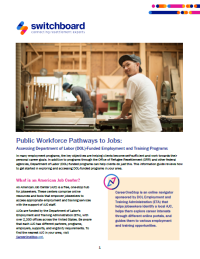Resume building is a vital part of offering effective employment services. When newcomer clients have never worked outside the home or have only held informal jobs, service providers may feel uncertain about how to fill the traditional sections of resumes. However, in nearly every case, these newcomers have relied on a particular set of proficiencies […]






